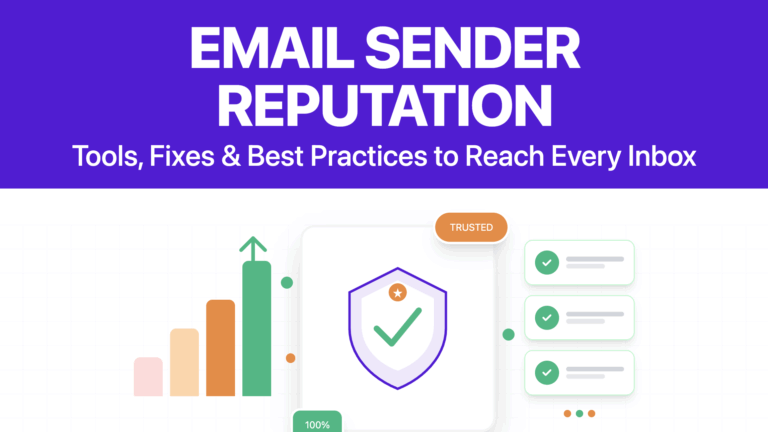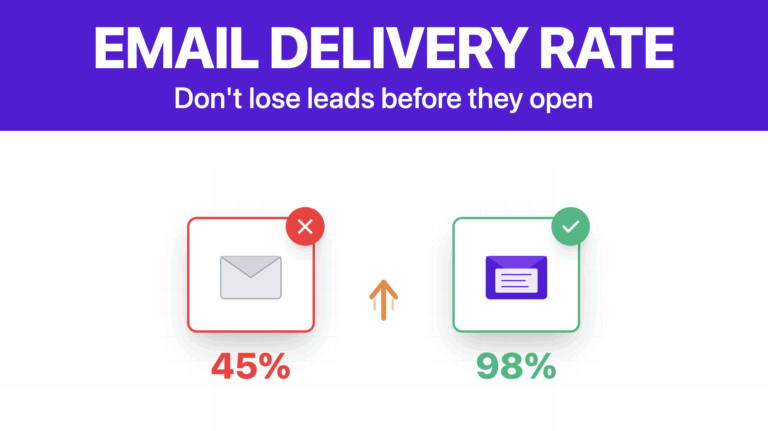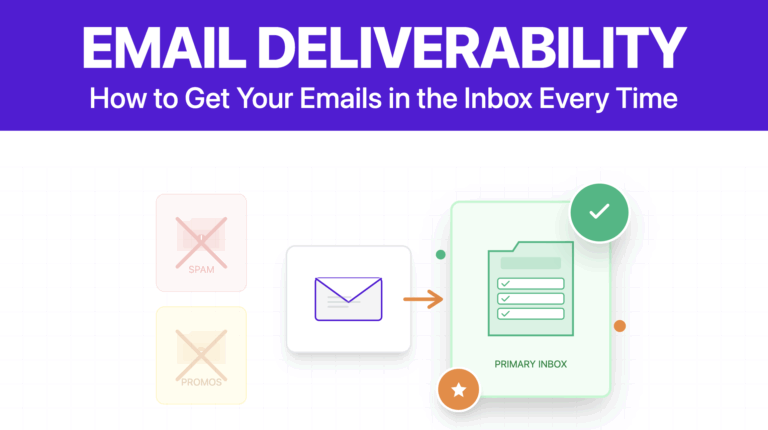Spam Traps: What They Are, How They Work, And How To Avoid Them
Contents
If your cold emails are landing in spam or your deliverability suddenly drops for no clear reason, chances are you’ve hit a spam trap.
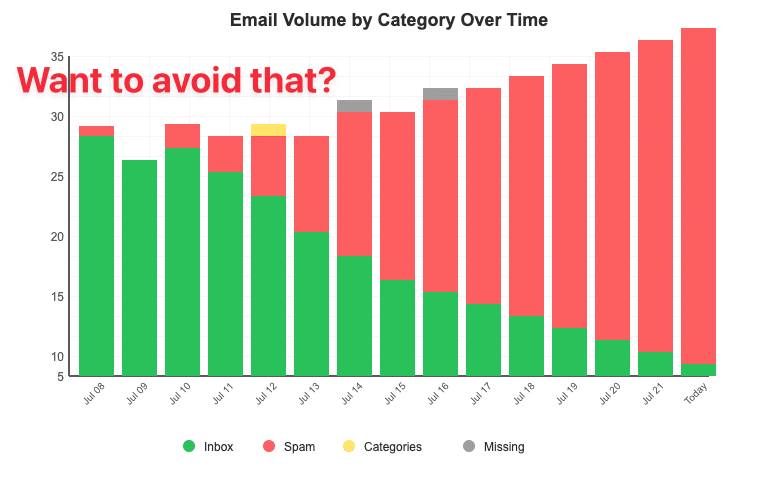
Spam traps are invisible landmines in your email list created to catch senders who don’t follow email marketing best practices.
But here’s the twist: you don’t have to be a spammer to trigger one.
Even legit companies doing outbound can get caught.
Here’s what we’ll cover in this guide so you can avoid being seen as a spammy sender:
- What Is A Spam Trap?
- Types Of Spam Traps
- How Spam Traps Affect Your Email Strategy
- How To Identify Spam Traps In Your Email List
- Best Email Verification Tools To Detect Spam Traps
Let’s dive in.
What Is A Spam Trap?
A spam trap is a fake or inactive email address used to detect spammy or careless senders.
Internet service providers (ISPs) and anti-spam organizations create them to catch emails sent without permission or with poor list hygiene.
If you hit one, it sends a clear signal to spam filters: “This sender doesn’t clean their list. They might be a spammer.”

As a consequence, you get blocklisted and email deliverability tanks.
And you won’t even know it happened until it’s too late.
Spam traps are silent killers in your cold outreach. That’s why avoiding them should be at the core of your email strategy.
Types Of Spam Traps
Now that you know what spam traps are, let’s break down the different flavors—because not all spam traps are created equal.
Some will damage your sender reputation instantly. Others are more forgiving… but still dangerous.
Here’s what you need to watch out for:
- Pristine Spam Traps
- Recycled Spam Traps
- Typo-Based Spam Traps
- Fake Or Invalid Emails
1. Pristine Spam Traps
These are the worst spam traps. They were never used by a real person.
They’re hidden inside website code—waiting to be scraped by bots or careless list builders.
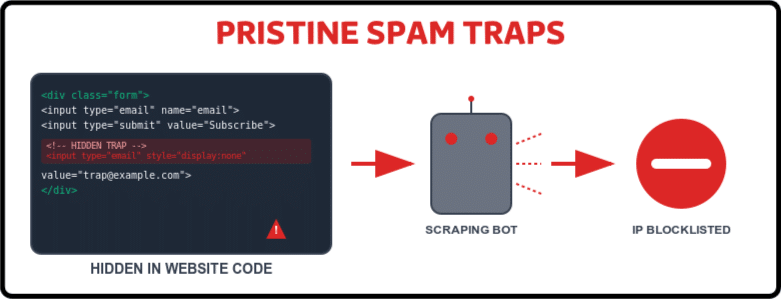
You won’t find them in any legit opt-in form. If they’re on your list, you either scraped a site or bought shady data.
Hit one of these, and your IP might get blocklisted instantly.
2. Recycled Spam Traps
Once upon a time, these were legit inboxes.
Now, they’re retired and repurposed by ISPs to catch marketers who never clean their list.

Think of that old address someone used in 2010 and abandoned. Keep sending emails to it, and you’ll start raising flags.
They won’t block you after one email, but repeated hits will hurt your deliverability over time.
3. Typo-Based Spam Traps
Ever seen @gmial.com instead of @gmail.com?
That’s a typo-based trap.
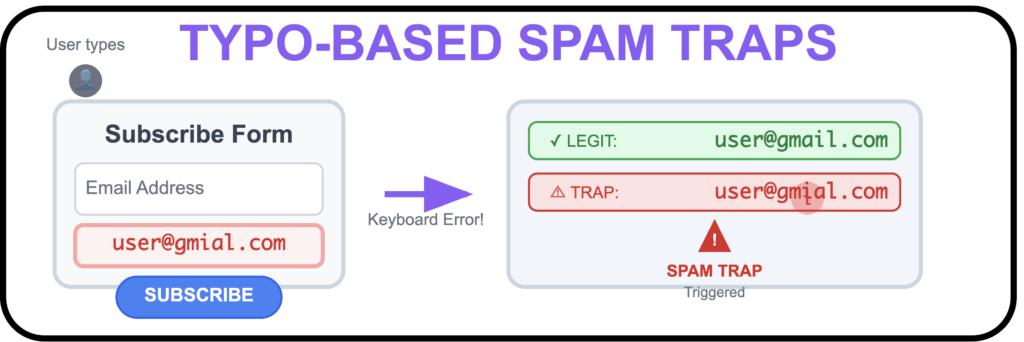
These addresses are created to catch unvalidated inputs. A tiny keyboard error can turn a legit opt-in into a spam trap trigger.
And the worst part? They often come from your own forms.
4. Fake Or Invalid Emails
Sometimes people just don’t want your content.
So they enter fake addresses like donotmailme@please.com just to get past a lead magnet gate.
These aren’t always traps, but some are.

And if you’re not validating emails, you’re letting them through the door.
Spam filters don’t care why it happened—only that it did.
How Spam Traps Affect Your Email Strategy
Hitting a spam trap isn’t just a minor slip: it’s a red flag that can tank your entire outreach.
Here’s what happens behind the scenes when you trigger one:
- Your deliverability drops: Spam filters start rerouting your emails to the junk folder. Even for leads who want to hear from you.
- Your bounce rates spike: Especially with recycled or typo traps, you’ll see more hard bounces—which signals poor list hygiene.
- You get blocklisted: Hit a pristine trap? Your domain or IP might get added to a blocklist. And once you’re on it, getting off can be a nightmare.
- Your sender reputation tanks: ISPs track your email behavior. Too many trap hits = bad rep = poor inbox placement going forward.

In a nutshell, your whole marketing engine slows down: Lower open rates. Fewer replies. Sales teams chasing leads that never saw the email.
Spam traps don’t just hurt deliverability—they hurt revenue.
How To Prevent Spam Traps In Your List
Spam traps don’t randomly appear on your list.
They’re a consequence of poor acquisition tactics or bad hygiene.
The good news? You can avoid them completely if you follow a few golden rules:
- Never Purchase Email Lists
- Use Double Opt-In Confirmation
- Validate Email Addresses Automatically
- Keep Your List Updated
1. Never Purchase Email Lists
This one is non-negotiable.
Purchased lists are spam trap magnets. You have no idea where those contacts came from or if they even exist.

Most pristine traps live in these shady databases.
If you’re buying email lists, you’re playing Russian roulette with your sender reputation.
2. Use Double Opt-In Confirmation
Let your leads prove they want your emails.
A double opt-in confirmation ensures the email is legit and correctly spelled. It also weeds out bots, typos, and fake sign-ups.

Bonus: it builds trust with your audience from the first touchpoint.
3. Validate Email Addresses Automatically
Don’t wait for spam traps to expose you—catch them before they enter your list.
Use an email verification API on your forms. Flag common typos, invalid domains, or known traps in real time.

No more @gnail.com slipping through.
This one fix can eliminate most typo-based traps overnight.
4. Keep Your List Updated
Even good data goes stale over time.
If someone hasn’t opened or clicked your emails in the last 3 to 6 months, it’s time to let them go.
Removing these unengaged contacts reduces your bounced emails and complaint rates, improves deliverability, and helps you steer clear of recycled spam traps that often hide in older segments.

Think of it as regular maintenance, because your list is only as good as its health.
How To Identify Spam Traps In Your Email List
Spam traps don’t raise their hand. There’s no warning message, no flashy alert in your dashboard.
But if you know what to watch for, you can catch them before they destroy your deliverability.
Here are the best ways to identify spam traps in your email list:
- Watch For Sudden Drops In Deliverability
- Monitor Bounce Rates And Blocklist Status
- Segment And A/B Test Your Lists
- Use Reputation Tools And Monitoring Platforms
- Use Email Verification Tools To Clean Your List
1. Watch For Sudden Drops In Deliverability
One of the first signs you’ve hit a spam trap is a sharp decline in open rates or inbox placement—especially when everything else in your campaigns stays the same.
If emails that usually land in inboxes suddenly disappear into spam folders, you may have triggered a filtering rule set off by a spam trap.
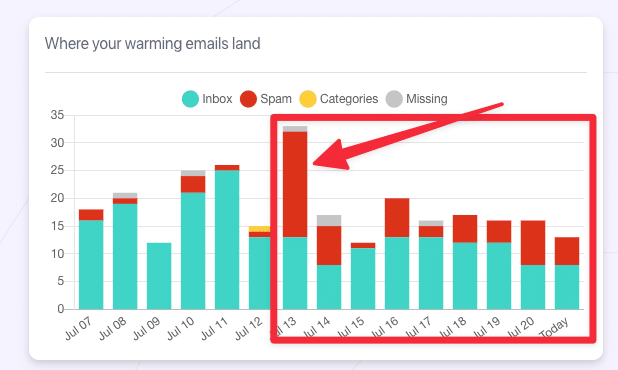
Even your best-performing segments can go cold overnight if ISPs start flagging your domain.
2. Monitor Bounce Rates And Blocklist Status
Recycled and typo-based traps often show up as hard bounces, while pristine traps can result in your IP or domain being blocklisted altogether.
If your bounce rate is creeping up—or if your email delivery rate suddenly plummets—check your status using tools like MXToolbox or Multirbl.valli.org.
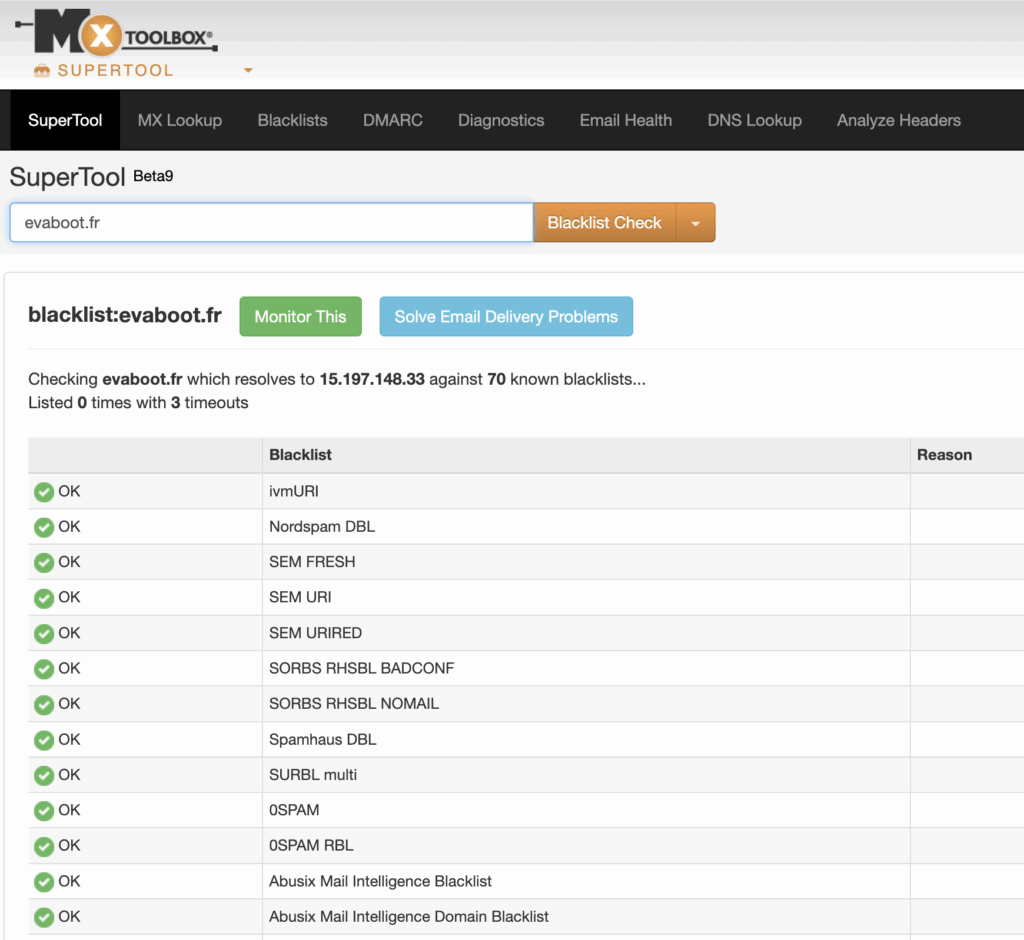
A sudden appearance on a blacklist is a strong signal that your list includes a trap.
3. Segment And A/B Test Your Lists
If you suspect a trap but can’t pinpoint where, segment your list into smaller groups based on lead source, signup date, or engagement level.
Send identical campaigns to each group and closely track their performance.
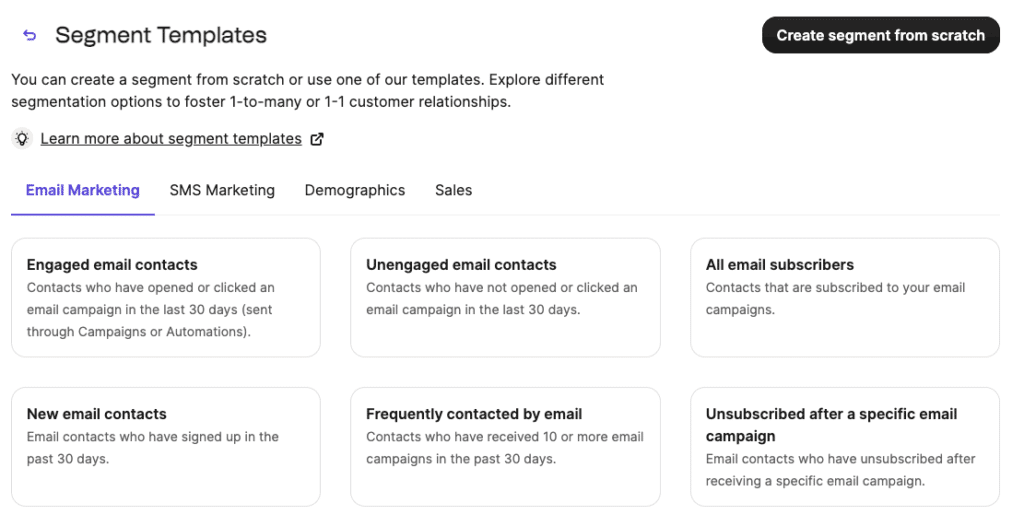
One segment will likely stand out with dramatically worse metrics. That’s your red zone—quarantine it, clean it, or cut it.
4. Use Reputation Tools And Monitoring Platforms
Platforms like ZeroBounce and SenderScore can help detect spam traps by analyzing your sender reputation and list quality.
Sender Score is like a credit score for your email IP. It gives you a number from 0 to 100 based on how trustworthy you look to ISPs:
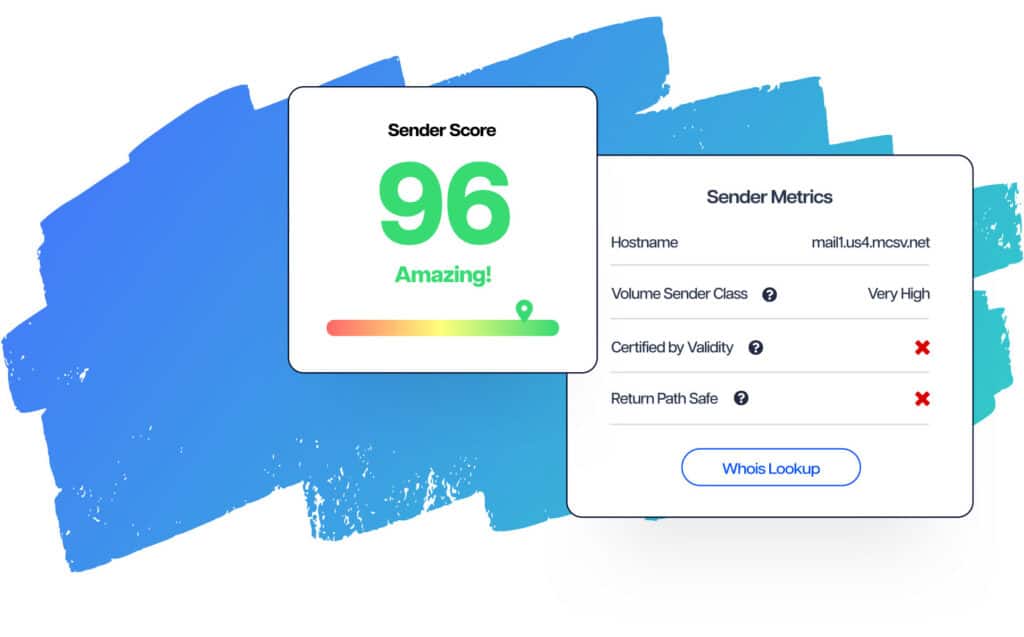
These tools will flag suspicious patterns, alert you to sudden changes, and sometimes even identify the type of trap you’re hitting.
5. Use Email Verification Tools To Clean Your List
While monitoring tools warn you after you’ve hit a trap, email verification tools help you catch traps before they cause damage.
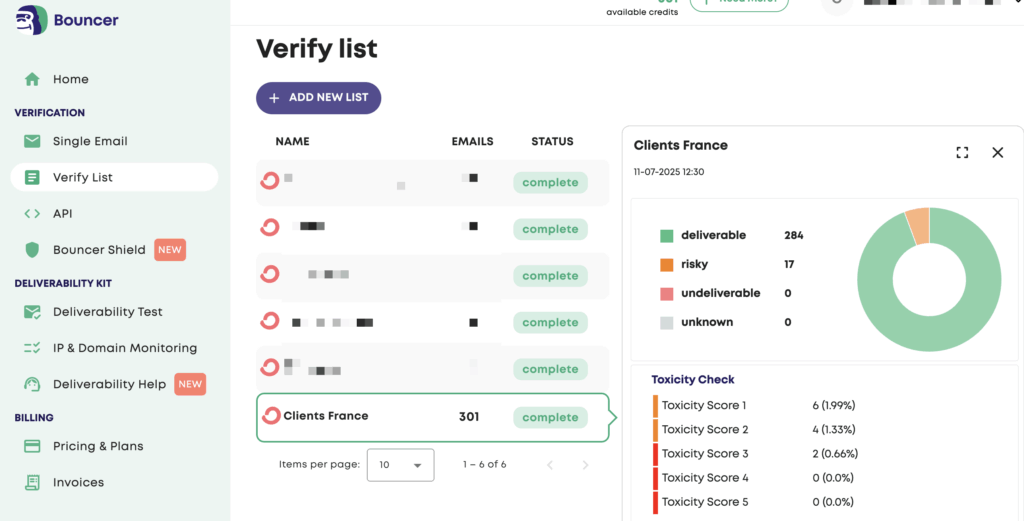
Those tools scan your list for:
- Invalid addresses
- Known spam traps
- Typos and formatting errors
- Risky domains
In the next section, we’ll explore some of the most effective tools for bulk email list verification.
Best Email Verification Tools To Detect Spam Traps
Email verification tools are your first line of defense against spam traps, fake signups, typos, and expired addresses that silently destroy your deliverability.
But not all verification tools are built the same.
Here are the ones that do it best:
- Evaboot
- ZeroBounce
- Hunter
- EmailListVerify
- NeverBounce
1. Evaboot
Evaboot isn’t just a data scraper for LinkedIn Sales Navigator. It’s also an email verifier that detects risky addresses before you ever send a message.
Its main features include:
- Find professional emails
- Verify emails
- Export leads from LinkedIn Sales Navigator
- Export company profiles
- Export LinkedIn profile URLs
- Clean the data (emojis, capital letters, typos…)
- Detect false positives in your search results
The Email Verifier feature allows you to verify email addresses in bulk and instantly clean your contact lists.
It’s very easy to use:
Drop your CSV file (up to 2,500 rows), and Evaboot will process the list: verifying and labeling emails in one go.
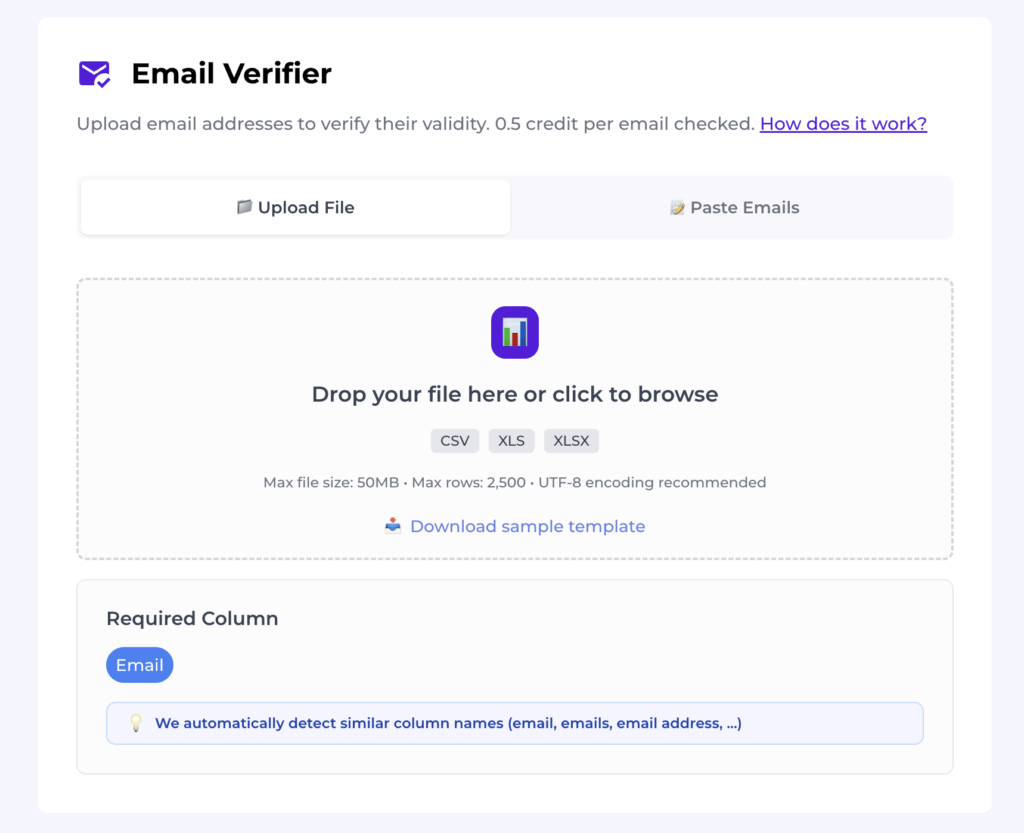
You’ll get back a file with “safe” vs. “riskier” annotations based on bounce likelihood.
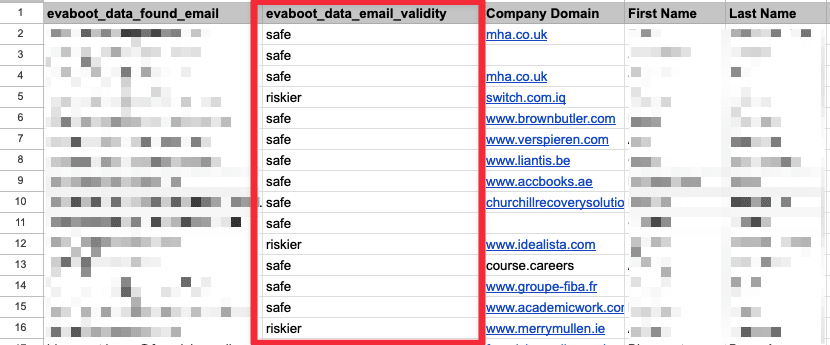
Here’s a video tutorial if you prefer to watch how it works:
And if you don’t already have an email list to verify, you can use Evaboot to scrape your lead data from LinkedIn Sales Navigator.
It’s the perfect solution if you want to create lead lists from your LinkedIn network and enrich them with real-time verified emails.
It provides you with ready-for-outreach Excel files in just one click.
Here’s how it works:
1. Click the extension button on the top right of your Sales Navigator page.

2. It’ll redirect to the Evaboot dashboard, where you can launch the export.

Once the export is done, you can download the email lists with all the other lead information needed to personalize your outreach messages.
To better understand how it works, you can also watch this video showing the full process of exporting Sales Navigator leads to Excel:
With Evaboot, you don’t have to worry about the quality and legality of the data.
You’ll have GDPR-compliant and verified emails ready to exploit in your next outreach campaign.

Evaboot’s pricing is credit-based.
The most basic plan starts at $9 for 100 credits.
2. ZeroBounce
ZeroBounce is an easy-to-use email verification tool with a user-friendly interface and high accuracy.

It’s a great starting point for those new to email verification.
The tool checks for invalid addresses, spam traps, and syntax errors to ensure your email list is clean and deliverable.

ZeroBounce provides email validation and an email finder API, which is available in 13 languages, including PHP, iOS, Scala, Javascript, and more.
Installing the verification API on your preferred system, platform, and website will allow you to validate emails automatically using your software or application.

Their pricing is built for businesses of all sizes.
They offer a free trial, and their prices are credit-based, with a price per credit of $0.009.
3. Hunter
Hunter.io is a leading email search engine specializing in discovering and verifying professional email addresses across the web.
Hunter finds and verifies emails via any company domain, company name, prospect name, Bulk email finder, API, Google Sheets Add-on, or Hunter plugin.


Hunter’s main features are:
- Finding professional email addresses associated with any domain
- Domain search to find all the publicly available email addresses associated with it
- Integrate Hunter.io with your CRM, such as HubSpot or Salesforce, to automate lead generation
- Perform bulk searches to find multiple email addresses at once
- Use the Hunter API to find emails
- Email Finder extension to find emails from the website you use

You can try Hunter.io for free, which offers 25 searches and 50 verifications per month. The Starter Plan starts at €49/month, including 50

4. EmailListVerify
EmailListVerify is an email list cleaning and verification tool that ensures the addresses on your list are valid, deliverable, and safe to send to.

This helps improve email deliverability, reduce bounce rates, and protect your sender’s reputation.
Key features include:
- Bulk email verification
- Syntax checking
- Domain and MX record validation
- Disposable and role-based email detection
- Spam trap and abusive email detection

The pricing is based on the number of emails you want to check, with options ranging from pay-as-you-go credits to monthly subscriptions.

5. NeverBounce
NeverBounce is an email verification and list-cleaning service that ensures your email lists are accurate and up-to-date.

Verifying email addresses in real-time and cleaning bulk lists helps reduce bounce rates and improve email deliverability, ensuring your emails reach their intended recipients.
Main Features:
- Real-time email verification
- Bulk email list cleaning
- Automated list cleaning via integrations
- Instant bounce analysis
- Seamless API for developers

NeverBounce offers a price-per-email pricing model. This means that you pay for the number of emails you verify.
This model lets you verify or clean as many emails as you want.
Conclusion
Spam traps don’t just mess with your deliverability, they ruin your sender reputation, tank your open rates, and quietly sabotage your pipeline.
The worst part? Most companies don’t even know they’ve been hit.
But now you do.
Follow the strategies in this guide and you’ll never have to worry about getting flagged as a spammer.

FAQs
What Is An Example Of A Spam Trap?
A common example is a fake email like trap@example.com hidden on a website.
If you scrape emails or buy lists, this kind of trap can slip into your database and ruin your sender reputation.
How Can I Find Spam Traps In My Email List?
Use email reputation tools like ZeroBounce or SenderScore, monitor for sudden drops in open rates, test smaller segments of your list and use email verification tools.
Spam traps often reveal themselves through poor engagement and blocklist alerts.
Are Spam Traps Always Harmful?
Yes. Even a single hit can trigger spam filters or get your IP blocklisted. While recycled or typo-based traps may be less severe, repeated hits will still damage your deliverability
Can I Remove Spam Traps From My List?
Absolutely. Start by removing inactive subscribers, segmenting your list, and using a verification tool to scan for risky addresses.
Regular cleaning is the best way to eliminate hidden traps.
How Often Should I Verify My Email List?
At least once every 3 months. But if you’re doing high-volume outreach or running paid ads, set up real-time validation on your forms and verify new entries daily.


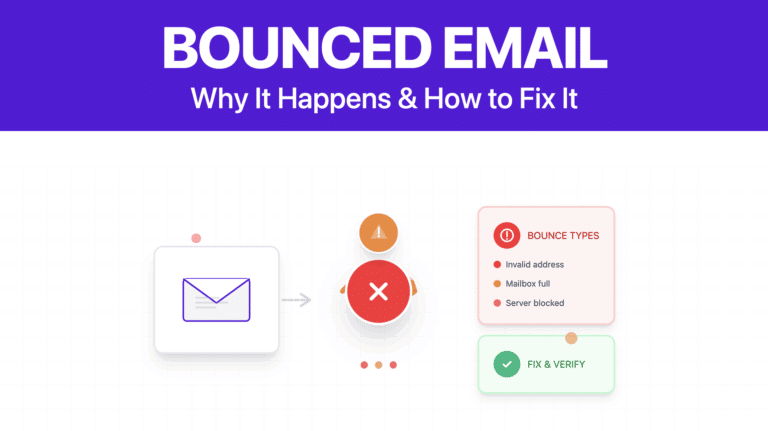
![Best Email Verification Tools Compared In [year] 70 best email verification tools](https://evaboot.com/wp-content/uploads/2025/04/best-email-verification-tools-1-768x431.png)
